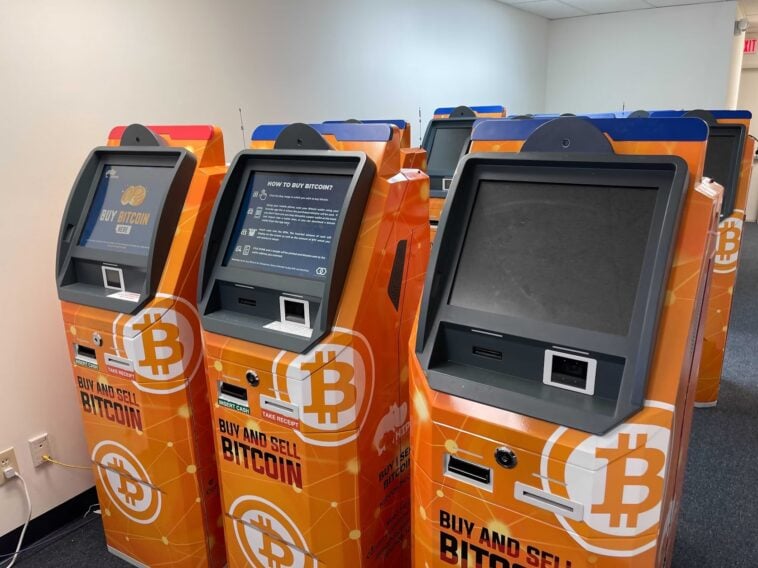When 85-year-old Fran Bates walked into a Fort Worth gas station in June 2024, she thought she was following her bank’s instructions. The man on the phone had told her she was at risk of losing her savings and needed to secure them immediately. The “machine” that would keep her money safe turned out to be a Bitcoin ATM.
Over two days, Bates withdrew more than $40,000 in cash and began feeding the bills into the kiosk as the caller guided her step by step. “It’s a horrible, horrible experience,” Bates later told ABC News. “Oh, they have you right where they want you.”
She’s part of a growing pattern. The FBI says Americans lost nearly $250 million to scams involving Bitcoin ATMs in 2024 — more than double the previous year. The AARP estimates there are now over 45,000 machines across the U.S., many operating with little oversight and high transaction fees.
“Requesting crypto is now the No. 1 preferred method of criminals,” said Amy Nofziger, AARP’s director of fraud victim support. “It is a huge problem.”
Bitcoin ATMs let users insert cash and send it to digital wallets anywhere in the world within minutes. Once complete, the money is nearly impossible to recover — a setup that’s proven irresistible to fraudsters.
Authorities are beginning to intervene. The Washington, D.C. attorney general’s office recently sued Athena Bitcoin, one of the country’s largest operators, accusing it of “pocketing hundreds of thousands of dollars in undisclosed fees on the backs of scam victims.” The suit claims that 93 percent of Athena’s local transactions were fraudulent, with a median victim age of 71. Athena denied the allegations, saying it maintains “strong safeguards against fraud including transparent instructions, prominent warnings and consumer education.”
Similar cases have been filed elsewhere. In Iowa, Attorney General Brenna Bird accused operators Bitcoin Depot and CoinFlip of being “a silent partner to many scammers preying on Iowans.” Both companies have rejected the claims. Bitcoin Depot told ABC News that “the vast majority” of its transactions are legitimate and that customers receive “up to four scam warnings before completing a purchase.” CoinFlip said it refunds transaction fees “in instances of fraud.”
Advocates have urged regulators to tighten rules, including daily deposit limits and stricter ID verification. At least 17 states have passed new laws on Bitcoin ATMs, while some cities have opted to ban them entirely.
In most cases, victims never get their money back. Bates did — but only because a stranger stepped in. Myndi Jordan, another customer at the gas station, saw her feeding stacks of cash into the machine and called police. Officers arrived in time to stop the transfer.
Bates later called Jordan her “guardian angel.” Lieutenant James Stewart of the White Settlement Police Department, who helped recover the funds, called her “a knight in shining armor.”
“It felt amazing, being able to see it to the end and see the happy ending,” Stewart told ABC News.
For most, though, that ending never comes. Once the bills go in, the trail goes cold — and the money is gone for good.
Source: ABC News

